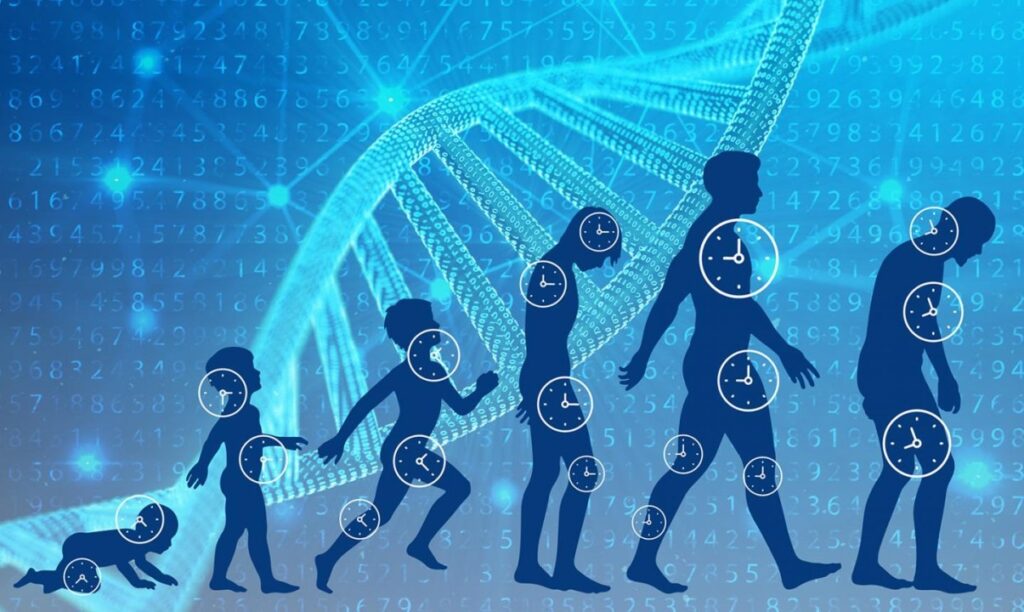Introduction
Aging is no longer seen as an unstoppable decline. In 2025, breakthroughs in biotechnology, nutrition, and preventive medicine are shifting the conversation from “adding years to life” to “adding life to years.” Scientists now view aging not only as a natural process but also as a modifiable condition. By combining personalized health strategies with cutting-edge science, people are unlocking the possibility of living longer, stronger, and sharper.
This article explores the most advanced longevity strategies of 2025 backed by science and lifestyle innovation.

1. Precision Nutrition: Food Meets Genetics
The concept of “eat healthy” has evolved. In 2025, nutrigenomics allows individuals to design diets based on their DNA.
- Genetic testing reveals how your body metabolizes carbs, fats, and proteins.
- Personalized meal plans reduce inflammation, boost metabolism, and prevent age-related diseases.
📊 Harvard’s 2024 study shows personalized nutrition can improve health outcomes by 27% compared to generic diets.
2. Fasting & Metabolic Flexibility
Intermittent fasting has gone mainstream, but 2025 research takes it further: circadian fasting.
- Eating aligned with your body’s clock improves insulin sensitivity.
- Fasting activates autophagy, clearing damaged cells.
- Longer “longevity fasts” (24–48 hrs monthly) are linked to reduced risk of Alzheimer’s and cardiovascular disease.
👉 Apps now calculate the ideal fasting window for your biology using AI.
3. Exercise as Anti-Aging Medicine
Exercise is no longer about aesthetics — it’s cellular therapy.
- Strength training prevents muscle loss (sarcopenia) and boosts bone density.
- Zone 2 cardio (moderate-intensity) improves mitochondrial health.
- Mobility training reduces injuries and keeps joints youthful.
📊 WHO reports that adults over 40 who combine strength + cardio lower mortality risk by 30–40%.
4. Sleep as Longevity Currency
Sleep is being called the “master regulator of aging” in 2025.
- AI-powered mattresses adjust temperature to enhance deep sleep.
- Smart wearables track REM cycles and provide personalized interventions.
- Deep sleep triggers growth hormone release, vital for tissue repair and memory.
Lack of sleep is now linked with accelerated biological aging at the epigenetic level.
5. Biohacking & Anti-Aging Therapies
2025 has seen a surge in biohacking communities adopting science-backed interventions:
- NAD+ boosters enhance cell repair.
- Senolytics clear “zombie cells” that drive inflammation.
- Cold plunges & heat therapy increase stress resilience and improve cardiovascular function.
Though still experimental, these methods are paving the way for reversing aspects of aging.
6. Gut Health & Longevity
The gut microbiome is now recognized as the control center of health.
- A diverse microbiome boosts immunity, regulates mood, and slows inflammation.
- Probiotics, prebiotics, and high-fiber foods are considered longevity staples.
- Scientists are even developing “microbiome transplants” as anti-aging therapies.
📊 Research from Stanford University suggests that gut health impacts 70% of the immune system’s strength.
7. Stress & Emotional Resilience
Longevity isn’t only physical — mental health determines lifespan.
- Meditation, breathwork, and nature therapy lower cortisol.
- Digital detox improves brain clarity.
- Social connections are scientifically proven to increase lifespan more than diet alone.
In fact, a 2023 Yale study showed that loneliness increases mortality risk as much as smoking 15 cigarettes a day.
8. Preventive AI Healthcare
In 2025, AI health companions are mainstream.
- Wearables monitor glucose, oxygen, heart rate, and even predict disease risk.
- AI scans detect cancer and chronic conditions years earlier than traditional tests.
- Preventive medicine replaces reactive medicine.
👉 The future of longevity is predictive, personalized, and preventive.
9. Purpose, Growth & Cognitive Longevity
Aging well is also about staying mentally sharp and purposeful.
- Lifelong learning keeps the brain neuroplastic.
- Having a strong sense of purpose reduces dementia risk.
- Brain-training games and nootropic supplements are now used for cognitive longevity.
📊 People with a strong sense of purpose are 20% more likely to live longer, according to a 2024 Japanese cohort study.
Conclusion
The science of longevity in 2025 reveals a powerful truth: aging is not just about fate, it is about choices. By aligning diet with genetics, optimizing sleep, building strength, nurturing mental health, and leveraging biohacking and AI, humans are redefining what it means to grow older.
Longevity isn’t just about adding years to life — it’s about adding quality to those years. The decisions we make today will determine not just how long we live, but how well we live.
